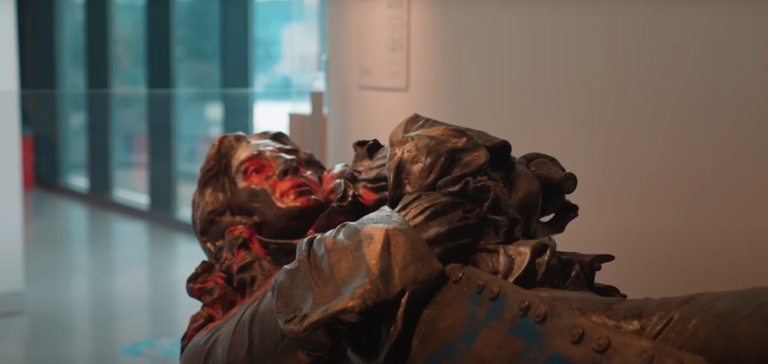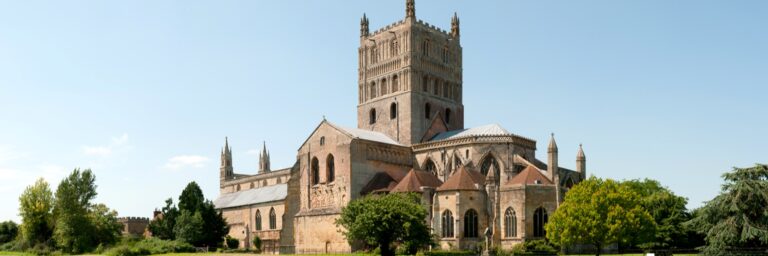| CC4HH
The Life and Legacy of Lilian Faithfull
This year, our students are working on a number of important local history projects covering the hidden lives of prominent women, exploring the experiences of lockdown, and uncovering links with slavery. All the projects will be exhibited in September as part of the ‘City Voices’ programme of the Gloucester History Festival. This post is one of five projects, and explores the life of famous Cheltonian and humanitarian, Lilian Faithfull. Group members include Grace Fry, Sam Hodges, Megan Kenchington, Tom White.
This project contributes to the women’s history of Cheltenham by exploring the life and work of one of its prominent twentieth-century educationalists and philanthropists: Lilian Faithfull (1865-1952).
Her education: Lilian Faithfull was born on 12 March 1865. She was one of eight children. In recognising her potential, her father sent her to his brother–in–law’s prep school, where she received a well-rounded and rare education. She was the only girl among twenty-five boys, and she later paid tribute to the thorough education she received. After completing her schooling, she continued to study from home and through the university extension movement, which had started offering lectures in subjects such as History and Economics.
She then attended Somerville College, Oxford, where she received a first-class degree in English Language and Literature. She couldn’t officially graduate but claimed an ad eundem award from Trinity College, Dublin, in 1905. She was awarded an honorary MA degree from Oxford in 1925 and a CBE in 1926.

Her career: Lilian Faithfull’s first job in 1887-88 was secretary to the principal of Somerville College, Madeleine Shall Lefevre. She then taught for a year at Oxford High School. She was then a lecturer in English at Royal Holloway College from 1889-94, and was subsequently appointed to succeed Cornelia Schmitz as Vice Principal of the ladies’ department of King’s College, London. She describes this job as one of the happiest educational posts for women in England. The aim of the department was to provide women with the same sorts of opportunities that were provided by the university extension lectures offered by Oxford and Cambridge. Women aged seventeen to seventy came to listen to lectures given by professors at Kings College. Faithfull was active in pushing for the advancement of women’s education, pursuing courses of study leading to university examinations, academic degrees and diplomas.

During her thirteen years as Vice Principal, the numbers of students doubled, a hall of residence was opened in 1897, household science was developed as a serious branch of study, and much of the King’s financial debt was cleared.
In 1906, Faithfull was persuaded to apply for the position of Headmistress at Cheltenham Ladies’ College following the death of Dorothea Beale. At the Ladies’ College, she is remembered as a likable, easy-mannered leader, who had concern and appreciation for her students’ welfare.
During the First World War, Faithfull recalls how often she had to share the news of lost fathers and brothers. She established an intercession room near her office, where students could go to pray and find some privacy. She also organised a Red Cross hospital in one of the boarding houses.
Faithfull also served as Justice of the Peace for twenty-five years, retiring on 17 January 1946. She was one of the first women magistrates to be appointed to the Commission of Peace in October 1920 and she was the first female magistrate to sit on the Cheltenham bench. On her retirement, the chairman (Sir Francis Colchester-Wemyss) said: ‘She has been a model of justice and will carry away with her the esteem and the affection of all the justices’.
Lillian Faithfull died on the 2 May 1952 at Faithfull House, Cheltenham, a home for the elderly that she had helped to found. She was buried in Cheltenham.
Our groups next steps: Sam and Grace are currently exploring the newspaper archives. We’ve had some success, finding new information and quotes about Lilian Faithfull’s role as magistrate. Tom and Meg will spend time in the University of Gloucestershire Archive and will read her memoirs. We’re hoping to find more personal reflections on the events of her life, as well as more information about her role as head mistress at the Cheltenham Ladies’ College and her career after retirement. Grace is going to chase the archivist at the Cheltenham Ladies’ College now that lockdown restrictions are being eased, in the hope of being able to access their records of her leadership. Melanie has forwarded to us some online information about Lilian Faithfull. Our key sources so far are an article from the Dictionary of National Bibliography archive, a few newspaper articles, and images from the care homes website.



